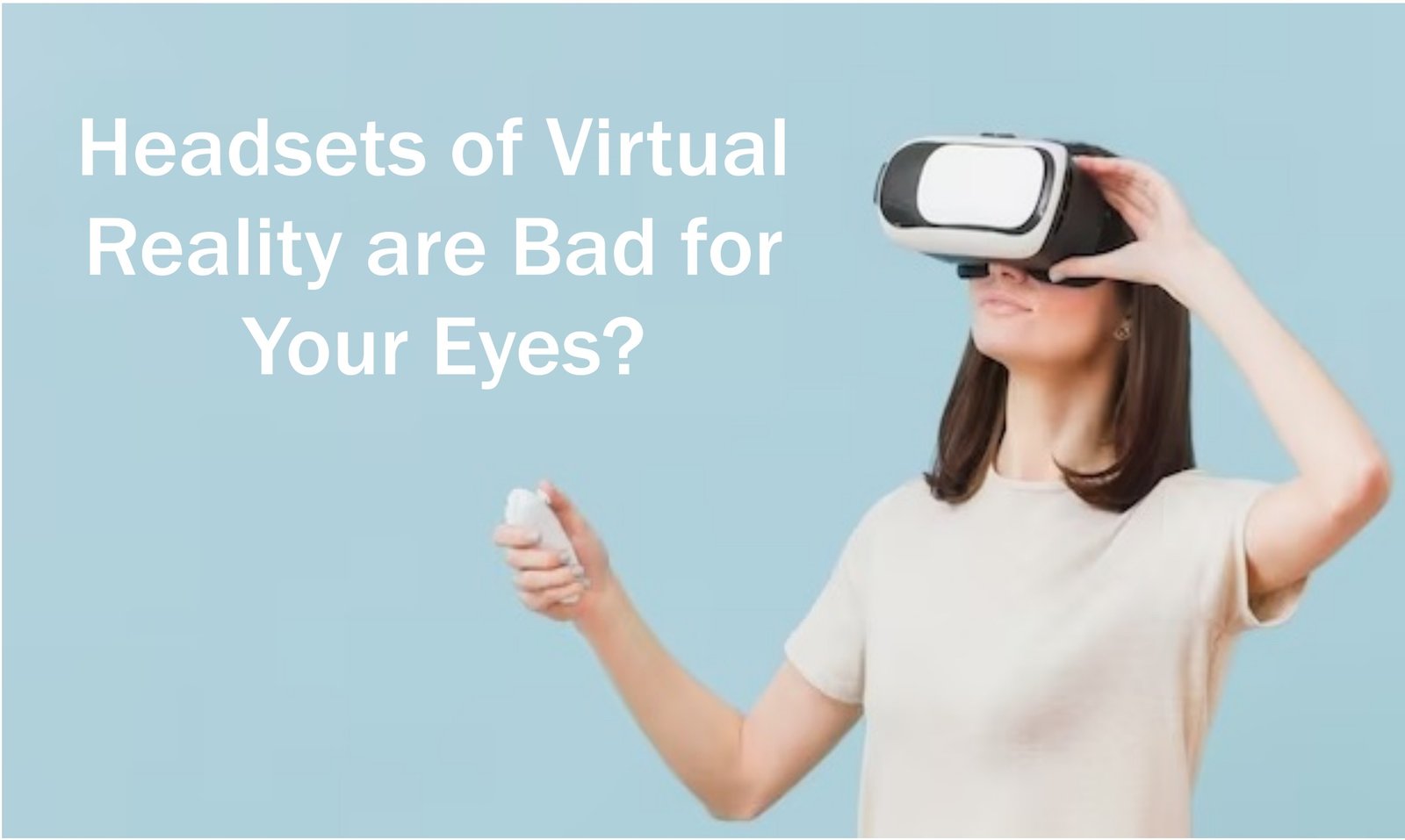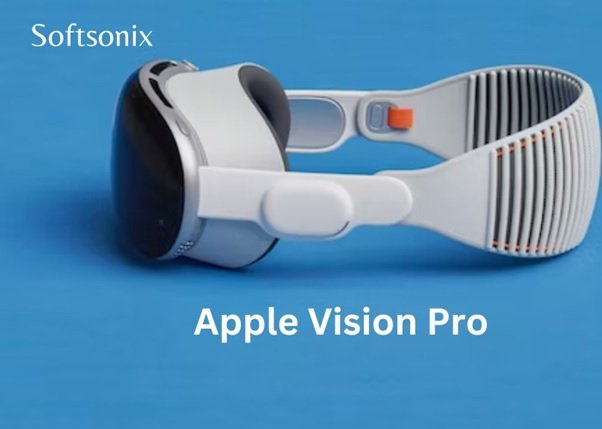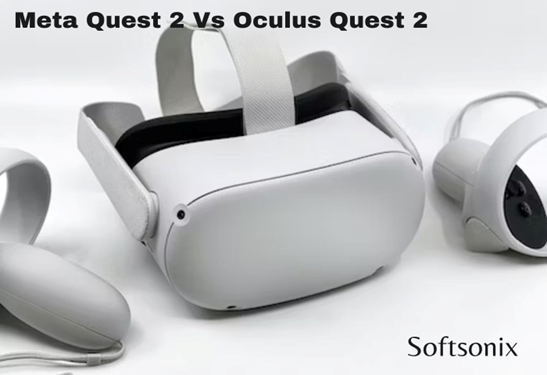Headsets of Virtual Reality are Bad for Your Eyes?

Credit - Freepik
Understanding the effects of virtual reality on eye health and providing relevant tips to mitigate the negative consequences. VR headset developers incorporate hardware and software to give users a pleasant immersive experience in a digital environment. Maintaining a balance between fun elements and eye health is necessary for long-term well-being. While the negative effects of virtual reality seem prominent, experts suggest using handsets responsibly to avoid any harm.
Virtual reality headsets are head-mounted devices that offer an optimal viewing experience. When first released for video games, they were bulky and costly. Today, different brands have created lighter versions of VR headsets with advanced features at more reasonable costs. Companies have introduced virtual experiences to IT zones for more productive purposes. Now that their application has expanded, questions about the effects of virtual reality on eyes often arise. Users wonder whether they are safe to use when used frequently.
Also Read -
Popularity of VR headsets
VR-based technology offers an immersive viewing experience for all kinds of purposes. You can easily place a VR headset on your head, adjust its straps, and edit settings according to your needs. Once the display mounts over the front of your eyes, modify the lens spacing to enhance the clarity of the image. You can also adjust focus or use your head movements to control the cursor. The salient features create innovative experiences in entertainment, medicine, education, and business applications.
Around 6 million headsets were sold by the end of 2021, increasing the sales to 16 million. The figures could increase as more hi-tech devices become accessible and reasonably priced. They are becoming increasingly popular among IT professionals for virtual meetings, collaborative projects, and training sessions. Technology helps users to interact with data and apps, increasing productivity in the digital workplace.
The application of virtual reality is prominent in the following industries:
- Video game
- Sports
- Automotive
- Marketing
- Education
- Tourism
- Retail
- Real estate
- Healthcare
- Telecommunication
Negative effects of virtual reality
VR handsets transform how we interact with technology, providing excellent immersive experiences. According to a news report, 70 percent of headset users complained of nausea and dizziness. The realism in the simulation can influence how people perceive the environment around them. It could lead to motion sickness and make them feel uncomfortable. Another concern is the effects of virtual reality on eye health. Here is a discussion on the potential eye problems from VR headsets.
1. Eye strain and pain
Eye fatigue could happen to users of virtual reality headsets due to focusing on a pixelated screen for a long. When immersed in a digital environment, users may rapidly change views or focus on the displays close to their eyes. This unusual way of processing visual stimuli can create immense eye strain. Besides fatigue in the eye muscles, symptoms include itching, burning, and headaches.
These head-mounted devices use virtual reality technology for an ultimate immersive experience. If you feel eye fatigue, take regular short breaks. This way, give your brain and eyes the necessary break while using a VR headset. Reducing sessions and adjusting the display settings can also help ease the stress. Though eye strain is not a critical issue, seek an ophthalmologist if your eye health issues persistently.
2. Blurry vision
Some virtual reality programs cause excessive eye strain due to their fast motion and lack of tracking frames. Users may move quickly around a virtual landscape and feel disoriented after removing the headset. Some report sleepy eyes, cloudy vision, and even headaches from seeing these VR programs for a long time. Motion sickness could also reduce their concentration power and create issues in daily life.
Virtual reality is a perfect immersive technology but requires users to stay vigilant to protect eye health. You can mitigate eye problems by adjusting the settings of your VR headsets. Adjust brightness, resolution, and motion view according to your needs. Explore the available headset features until you find the best combination that seems most comfortable for your eyes.
3. Dry eyes
VR headsets are usually heavy sets that put significant pressure on the eye sockets and face. It requires integrating high-resolution displays and motion sensors for an incredible immersive view. It affects eyesight because users will blink less than usual when using the headset. Less blinking can cause roughness near the eye surface, inducing pain and dry eyes. Another reason for dry eyes is that VR headsets become hot due to prolonged use.
Dryness or redness of the eyes creates temporary discomfort that gets cured soon. The best way to reduce potential eye problems is to practice well. Avoid excessive use and ensure wearing glasses or contact lenses. Get a contact eye test from an optometrist to check if glasses are right for you.
Also Read -
Virtual Reality Eye Protection Tips
Some regular VR headset users complain about eye discomfort, light sensitivity, and trouble concentrating. Here are some eye protection tips to reap the potential VR benefits.
- Clean the VR headset lenses, padding, and foam before each use
- Be vigilant and deliberately blink while using the headset
- Pay attention to your body and put off the headset if you feel uncomfortable
- Hold the display mount firmly in front of your eyes and adjust the strap
- Adapt the horizontal spacing of the lenses
- Reduce screen brightness
- Avoid spending 30 minutes in VR without a break
- Take a break between immersions and lubricate your eyes
- Wear eyeglasses or contact lenses if eyesight is already weak
Conclusion: Effects of virtual reality
Quality VR headsets offer incredible immersion but raise concerns about their impact on eye health. The negative effects of virtual reality are considerable. They include eye fatigue, blurriness, and dizziness. However, these symptoms are not a cause for concern because the uncomfortable feelings are only temporary. They could arise from any screen-based activity, like reading, watching TV, or using a computer for a long. As a regular VR user, you should use the headsets wisely. That means resting your eyes between the immersions, taking periodic breaks, and adhering to guidelines to preserve eye health. Despite taking precautions, if the problem persists, we suggest that you consult an eye doctor. A specialist can provide an appropriate treatment aligned with your lifestyle and needs.








